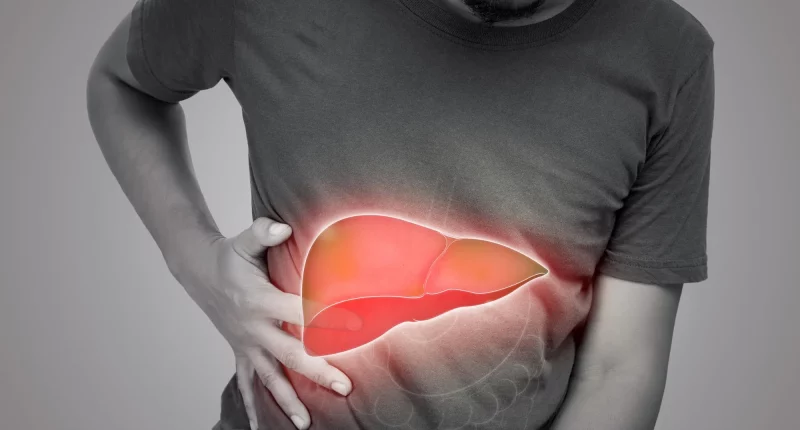Autoimmune hepatitis is a condition where the body’s immune system wrongly attacks the liver, leading to swelling and damage. To treat it, doctors focus on controlling the symptoms and utilizing medication to reduce the immune system’s activity.
This type of hepatitis is less common compared to other types. Researchers aren’t sure exactly how widespread it is, but studies in northern Europe suggest that between 10 to 24 population out of every 100,000 population have autoimmune hepatitis.
The disease can last a lifetime, but with proper treatment, many people can manage their symptoms, achieve remission (where the disease is not active), and slow down liver damage.
Symptoms
Autoimmune hepatitis can cause a variety of symptoms, which can range from mild to severe. The symptoms a person experiences depend on how much liver damage has occurred. Common symptoms include:
- Loss of appetite
- Fatigue (feeling very tired)
- Nausea (feeling sick to the stomach)
- Jaundice
- Lower stomach pain
If you have any of these symptoms and have not been diagnosed, you should see a healthcare provider.
Occasionally, a person with autoimmune hepatitis might not have noticeable signs until the disease has developed and scar tissue from cirrhosis starts causing problems. As the condition worsens and liver tissue is damaged, additional symptoms may appear, such as:
- Weight loss
- Swelling in the legs, ankles, and feet
- Itchy skin
- Fluid buildup in the abdomen
Not everyone with autoimmune hepatitis will have all of these symptoms. Symptoms can appear if the person has other health issues, like other autoimmune conditions.
Complications
If autoimmune hepatitis causes too much harm to the liver or if it is left untreated for too long, serious complications can occur. These complications include:
- Cirrhosis (scar tissue in the liver)
- Liver failure (when the liver stops working properly)
- Liver cancer
These complications may need extensive medications, and in some cases, a person might require a liver transplant.
Causes of Autoimmune Hepatitis
The exact cause of autoimmune hepatitis is still unknown. However, the Genetic and Rare Diseases Information Center suggests that individuals with a medical history of family of autoimmune conditions or those who have other autoimmune diseases can be at a higher risk of developing autoimmune hepatitis. This implies a potential genetic component or a shared underlying mechanism among autoimmune diseases.
Some medications can also trigger autoimmune liver injury. According to the National Institute of Diabetes and Digestive and Kidney Diseases (NIDDK), antibiotics such as nitrofurantoin and minocycline have been linked to liver damage. In these cases, the symptoms normally resolve once the person halts taking the medication, indicating that the drug was the trigger rather than a chronic autoimmune process.
Regardless of what triggers autoimmune hepatitis, the root cause of the symptoms is the damage to the liver. The body’s immune system receives incorrect signals about normal liver cells, mistaking them for harmful invaders. This results in the immune system attacking and damaging liver tissue. Over time, this immune response leads to the symptoms associated with autoimmune hepatitis, such as fatigue, jaundice, and abdominal pain. Understanding these underlying mechanisms helps in diagnosing and managing the condition effectively.
Diagnosis of Autoimmune Hepatitis
If someone thinks they might have liver damage, it’s important for them to visit a doctor.
When you see the healthcare provider, they’ll ask you questions about:
- Your symptoms
- Your medical history
- Any medications you’re taking
- Your lifestyle habits, like how much alcohol you drink or if you use drugs
The doctor will probably start with blood tests to check how your liver is functioning. They might also decide to do a biopsy.
During the process of biopsy, the doctor takes a tiny piece of tissue from your liver to look at under a microscope. This helps them see if there’s any damage. They’ll also test for specific antibodies in your blood to figure out which type of autoimmune hepatitis you have. This information is important for deciding on the best treatment for you.
Treatments for Autoimmune Hepatitis
The main goal of treatment is to make you feel better and to keep the disease under control as much as possible.
Healthcare providers usually start treatment with corticosteroids or drugs that suppress the immune system. These medicines help calm down the immune system, which might slow down its attack on your liver.
You’ll need to have regular blood tests to make sure the treatment is working well for you.
Sometimes, the first treatment might not work as expected. If that happens, your doctor might suggest trying other medicines to reduce inflammation or protect your liver from more damage. In these situations, there might be a higher chance of complications, which would need their own treatments. It’s important to keep working with your doctor to find the best treatment plan for you.
Improving Your Condition with Diet
There isn’t clear research showing that diet or specific foods can directly make autoimmune hepatitis better.
However, doctors might still suggest changes to your diet as part of your overall treatment plan. This could be really important if your liver is damaged and you have complications like cirrhosis.
In most cases, doctors will advise you to stay away from alcohol because it can harm your liver, especially if you have autoimmune hepatitis. It’s important to follow your doctor’s advice about what to eat and drink to help keep your liver as healthy as possible.
Outlook
With the right treatment, the condition might get better and go into remission. Remission means that the symptoms go away, and tests show that the liver is working normally.
During remission, doctors will often slowly decrease the amount of medication you’re taking. It’s important to keep doing tests to check your liver function and make sure the symptoms don’t come back.
Doctors might need to try different medications to get the condition into remission. If the symptoms come back after a period of remission, your doctor might increase your medication or start it again to bring the symptoms back under control and get you back into remission.
Summary
Autoimmune hepatitis is usually a lifelong condition, but with proper management, people can live well with it. It’s important to stay in touch with your doctor to keep an eye on your symptoms and manage the condition. This helps prevent any serious problems from developing.
Many people with autoimmune hepatitis find treatments that work well for them and help them feel better. If you’re unsure about your treatment, don’t hesitate to talk to your doctor. It’s important to be honest about all the supplements and medications you’re taking, as they could affect your treatment.
Regular checkups with your doctor and adjusting your medication as needed are the main for successful treatment. With the right care, many people can control their symptoms and even put the condition into remission.








